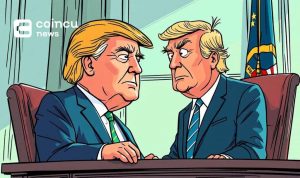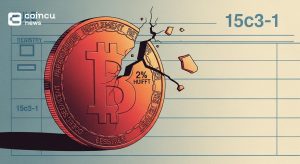Key Points:
- Cardano has started the first phase of its Chang hard fork, transitioning from centralized governance to a decentralized system.
- Over the next 90 days, Cardano will establish a community-led model with governance bodies.
Cardano, the Layer 1 blockchain created by Ethereum co-founder Charles Hoskinson, has initiated the first phase of its Chang hard fork, marking a significant shift from centralized to decentralized governance.

Read more: Best Cardano NFT Marketplaces To Trade
Cardano Taps into Decentralized Governance via Chang Hard Fork
This makes Cardano the first big blockchain to integrate a token-based governance system while the general crypto market is tending toward decentralization.
In development, the first phase of the Chang hard fork, which is now live, allows ADA token holders to take part directly in Cardano’s on-chain decision-making. Token holders have the ability to elect governance representatives and vote on various development proposals.
Over the next 90 days, Cardano will be completely migrated to a community-driven governance model. During this transition, an interim committee will oversee that three main new groups will be proposed for governance: a Constitutional Committee, Delegate Representatives, and Stake Pool Operators. The formed groups will take over fully at the end of the period.
Cardano Embracing Decentralization with New Governance Groups
The development and governance of Cardano have been ensured so far by Input Output Global, Cardano Foundation, and its commercial arm EMURGO. However, with the Chang hard fork, all these founding entities would not be in sole charge of upgrades to chains or hard forks themselves but would pass on to the new decentralized bodies. This, according to Cardano Improvement Proposal CIP-1694, gives the new structure in which such development should happen.
While considered a major development on Cardano’s roadmap, some critics say that DAOs are often plagued by things like bloated budgets, lack of accountability, and the tendency for a select few influential stakeholders to ultimately control most decisions.
In any case, Cardano’s move to a decentralized model can be viewed as one of attempting to live up to industry ideals and even to cement its position with regulators by making ADA more useful.
| DISCLAIMER: The information on this website is provided as general market commentary and does not constitute investment advice. We encourage you to do your own research before investing. |






















